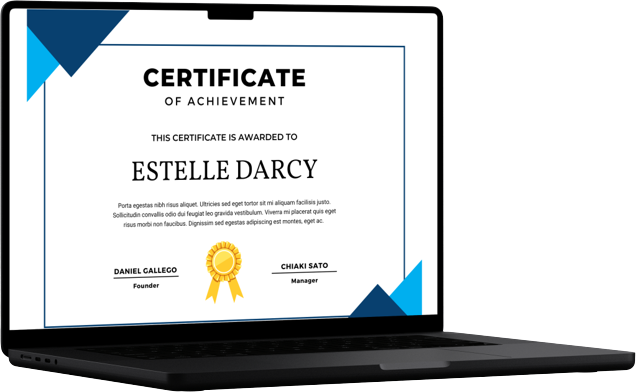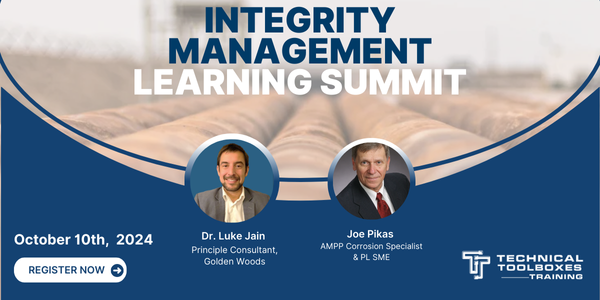June 20-21, 2023: 2-DAY Introduction to Pipeline Steels: Metallurgy, Manufacturing, Standards, and Specifications
-
Author: Bill Amend
-
Level: Beginner/
Intermediate -
PDHs: 9 hours
Write your awesome label here.
Course overview
This webinar, split into two sessions presented over two days, covers the basics of pipeline steel metallurgy with emphasis on directly addressing frequently asked questions and common misconceptions about steel pipe and fittings.
The webinar starts with a description of how pipelines fail since the failure modes influence what metallurgical measures are taken to minimize susceptibility to those failures. The major types of pipe and fitting manufacturing processes, and common flaws associated with them will be reviewed, including discussion of obsolete types of pipe that are still in service, for example, pipes with lap seams, furnace butt weld seams, and flash weld seams. The review will include a brief summary of some historical field construction practices that influence the integrity characteristics of those pipelines that are still in service.
Attendees will learn the significance of yield strength, ultimate tensile strength, hardness, toughness, and composition and how those attributes are specified and measured, including how test procedures can influence results. Attendees will also be introduced to the topic of pipeline welding since welding can introduce new flaws and can have a significant impact on pipe properties and susceptibility to various forms of in-service degradation.
This webinar will also introduce attendees to how various manufacturing, standards, and specifications compare to each other, how they have evolved over time and how they influence pipe mechanical properties, weldability, and long-term integrity.
Start Time: 9:00 a.m. (CDT)
End Time: 1:30 p.m. (CDT)
The webinar starts with a description of how pipelines fail since the failure modes influence what metallurgical measures are taken to minimize susceptibility to those failures. The major types of pipe and fitting manufacturing processes, and common flaws associated with them will be reviewed, including discussion of obsolete types of pipe that are still in service, for example, pipes with lap seams, furnace butt weld seams, and flash weld seams. The review will include a brief summary of some historical field construction practices that influence the integrity characteristics of those pipelines that are still in service.
Attendees will learn the significance of yield strength, ultimate tensile strength, hardness, toughness, and composition and how those attributes are specified and measured, including how test procedures can influence results. Attendees will also be introduced to the topic of pipeline welding since welding can introduce new flaws and can have a significant impact on pipe properties and susceptibility to various forms of in-service degradation.
This webinar will also introduce attendees to how various manufacturing, standards, and specifications compare to each other, how they have evolved over time and how they influence pipe mechanical properties, weldability, and long-term integrity.
Start Time: 9:00 a.m. (CDT)
End Time: 1:30 p.m. (CDT)
PDH Certificate included upon successful completion

-
Course Outline
What Characteristics are Important in Pipeline Steel and How are They Measured?- Composition
- Strength (YS and UTS)
- Toughness (static and dynamic testing)
- Weldability
- Microstructure
-
How is Pipeline Steel Made?
- Ingot casting v. continuous casting to produce skelp
- Influence of processing (example: rolling and forming, heat treatment, cold expansion)
-
How are Pipe and Fittings Made?
- Seamless pipe
- Seamed pipe
- Fittings and bends
- Typical flaws and vulnerabilities
-
An introduction to other alloys in pipeline systems
- Stainless steels
- Cast irons
- Nickel alloys
- Wrought iron
-
What Happens When We Weld Pipeline Steel?
- Weld metal/welding process selection
- Changes in the heat affected zone: strength, toughness, corrosion susceptibility
-
What Codes and Standards Address Pipeline Steel and Pipe/Fitting Manufacturing?How Have Pipe Manufacturing and Fabrication Practices Changed Over Time and What Does That Mean for Pipeline Integrity?
-
-
Bill Amend
Professional Engineer, Metallurgical Engineering SME, RSI Pipeline Solutions
ABOUT Bill
Bill Amend has provided metallurgical engineering services to the energy industry (oil & gas production and pipelines and geothermal energy production) since 1979. He previously worked with DNV (12 years), Structural Integrity Associates (5 years), Southern California Gas Company (14 years), and Unocal Corporation (12 years).
Bill’s areas of expertise include failure analysis, integrity management of early vintage steel pipelines and pipeline welds, in-situ, nondestructive determination of pipe properties, development and review of welding procedures for in-service pipelines and pipeline repair, materials selection for hydrogen pipelines, materials testing and selection for severe geothermal environments, and technical training.
Mr. Amend has served in various leadership roles in subcommittees of API 1104 and has managed and conducted several research projects for PRCI, earning the Distinguished Service Award from PRCI in 2002. He is co-holder of three U.S. patents related to control of corrosion in geothermal systems. Mr. Amend is a Professional Engineer registered in the State of California. He earned a Bachelor of Science in Metallurgical Engineering from Cal Poly, San Luis Obispo.
Bill’s areas of expertise include failure analysis, integrity management of early vintage steel pipelines and pipeline welds, in-situ, nondestructive determination of pipe properties, development and review of welding procedures for in-service pipelines and pipeline repair, materials selection for hydrogen pipelines, materials testing and selection for severe geothermal environments, and technical training.
Mr. Amend has served in various leadership roles in subcommittees of API 1104 and has managed and conducted several research projects for PRCI, earning the Distinguished Service Award from PRCI in 2002. He is co-holder of three U.S. patents related to control of corrosion in geothermal systems. Mr. Amend is a Professional Engineer registered in the State of California. He earned a Bachelor of Science in Metallurgical Engineering from Cal Poly, San Luis Obispo.

